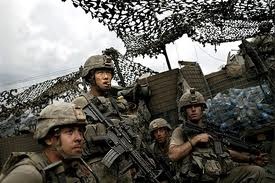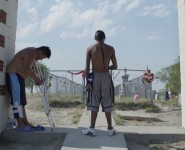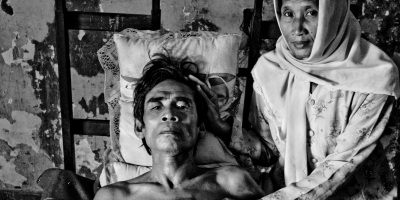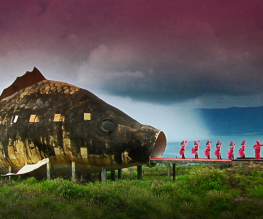Restrepo

Restrepo is known for winning the grand jury prize for best documentary at the 2010 Sundance festival, and is an account of a platoon of US soldiers deployed on a 15-month tour of the Korangal valley, often referred to as the “Valley of Death” by the military. Filmmakers Sebastian Junger and Tim Hetherington followed the men for a year, and the film is a combination of their footage and post-event interviews with the troops.
The first notable aspect of this film is that the directors have declined to take a political stance, they do not interview authorities, politicians, or present anything outside of the footage they have shot. The effect of this is to take the focus away from this aspect of the conflict, and forces the human element to the surface. The viewer is not encouraged to question the legality or moral issues surrounding the war in Afghanistan, but to empathise with the situation of the men on camera, going about their day to day lives.

The footage which has been captured is breathtaking, with the hand-held, visceral sequence in which a roadside bomb disrupts the platoon drawing the audience right in – the sound was lost at the time which has the effect of disorienting the viewer and generating extreme tension, and this is within the first 5 minutes of the film. To emphasise the conditions which the military face, the directors have not provided any voiceover, and very few subtitles. This provides an in-depth feeling to the film, which is not muddied by politics and numbers – these are real people, in real danger with real friendships and losses. The relief as an attack helicopter swoops to their rescue is palpable, and the genuine feeling of loss and despair at the death of one of the company is an emotional moment rivalling anything fiction film can thrown at the viewer. Restrepo is named after the Observation Point (OP) set up by the platoon, which was in turn named after their slain friend, “Doc” Restrepo, a 20-year old medic who becomes an effective symbol of the cameraderie between the men.
Scenes in the relatively safe-haven of the soldiers base reflect the simultaneous boredom and anxiety felt by the young soldiers, and provides some touching and intimate moments – they will strum a guitar together, or dance around to a stereo to break the tension of living in a warzone for 24 hours a day. The contrast between this and the explosive attacks they endure daily endear the audience to the men, making the conflict all the more tense for knowing that these are real people, not characters.
Documentary film can be an effective medium for conveying a message, either political or emotional. Restrepo is an example of a film which achieves its tone by adopting an unobtrusive, “laid bare” style which is perfect for the subject matter it deals with. This is a must see film, with a unique perspective on a massively divisive world event. For providing an unusually intimate commentary on Afghan conflict, as well as putting themselves in considerable personal danger (both men suffered injuries whilst making the film) Junger and Hetherington more than deserve to have picked up the Sundance award.
Special Features
Deleted Scenes
Where are they now?
Italian bites (excerpts of interviews with the platoon)
Trailer





Recent Comments